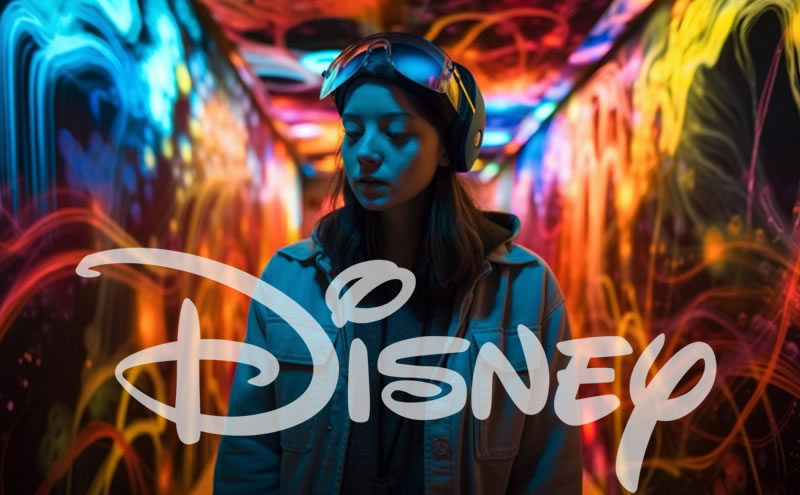Disney (NYSE: DIS) has made a surprising move, waving goodbye to the rapidly evolving metaverse. In an unexpected decision, the entertainment giant dismantled its Next Generation Storytelling and Consumer Intelligence Unit, which was responsible for developing metaverse strategies. It seems that Disney's magic carpet is headed in another direction, leaving the metaverse behind. But is this a strategic retreat or a missed opportunity?
Before we dive into the matter, let's take a moment to consider the magnitude of this decision. Disney has long been known for its innovation and storytelling prowess. Its retreat from the metaverse is akin to a master chef deciding not to experiment with the latest culinary trend. It's a bold move, and it raises questions about the company's strategy and the viability of the metaverse itself.
Disney's decision to exit the metaverse comes amid a greater cost-cutting effort. The company plans to reduce its headcount by 7,000, with more cuts to come this summer. It seems that, for now, Disney's priority is trimming the fat rather than exploring new frontiers. However, it's important to note that this decision might not be set in stone. After all, businesses evolve, and Disney may revisit the metaverse in the future.
But why has the metaverse proven challenging for Disney and others? For one, the term "metaverse" has become somewhat of a turnoff, with some associating it with frivolous virtual worlds rather than groundbreaking innovation. Furthermore, the approach to building a metaverse can be quite complex and expensive, requiring significant investments in technology, talent, and resources. This could be a roadblock for companies like Disney that are currently focusing on cost-cutting measures.
Moreover, Disney's departure from the metaverse raises questions about the approach taken by other major players in the space. For instance, Meta (NASDAQ: META), has been pouring enormous amounts of money and resources into developing its own version of the metaverse. But is their approach working? Recent reports suggest Meta's journey hasn't been smooth sailing either, as the company has been facing its own set of challenges.
The metaverse's potential is undoubtedly vast, but its success relies on companies adopting the right strategies and adapting to the ever-changing digital landscape. While some, like NVIDIA's Jensen Huang, remain optimistic and believe that the metaverse will create more jobs and opportunities, others are skeptical. As companies like Disney take a step back from the metaverse, it's essential to consider whether the focus should be on finding the right approach or if the metaverse is merely a passing trend.
In light of the challenges faced in the metaverse, Disney's decision to exit this virtual frontier can be seen as a bold move. By refocusing the company's resources and efforts on core strengths and cost-cutting measures, Disney is setting a course for stability and long-term growth. While the metaverse holds immense potential, Iger's leadership in recalibrating Disney's priorities may prove to be a wise strategy, ensuring the iconic brand's continued success in an ever-changing entertainment landscape.

















Rate this article